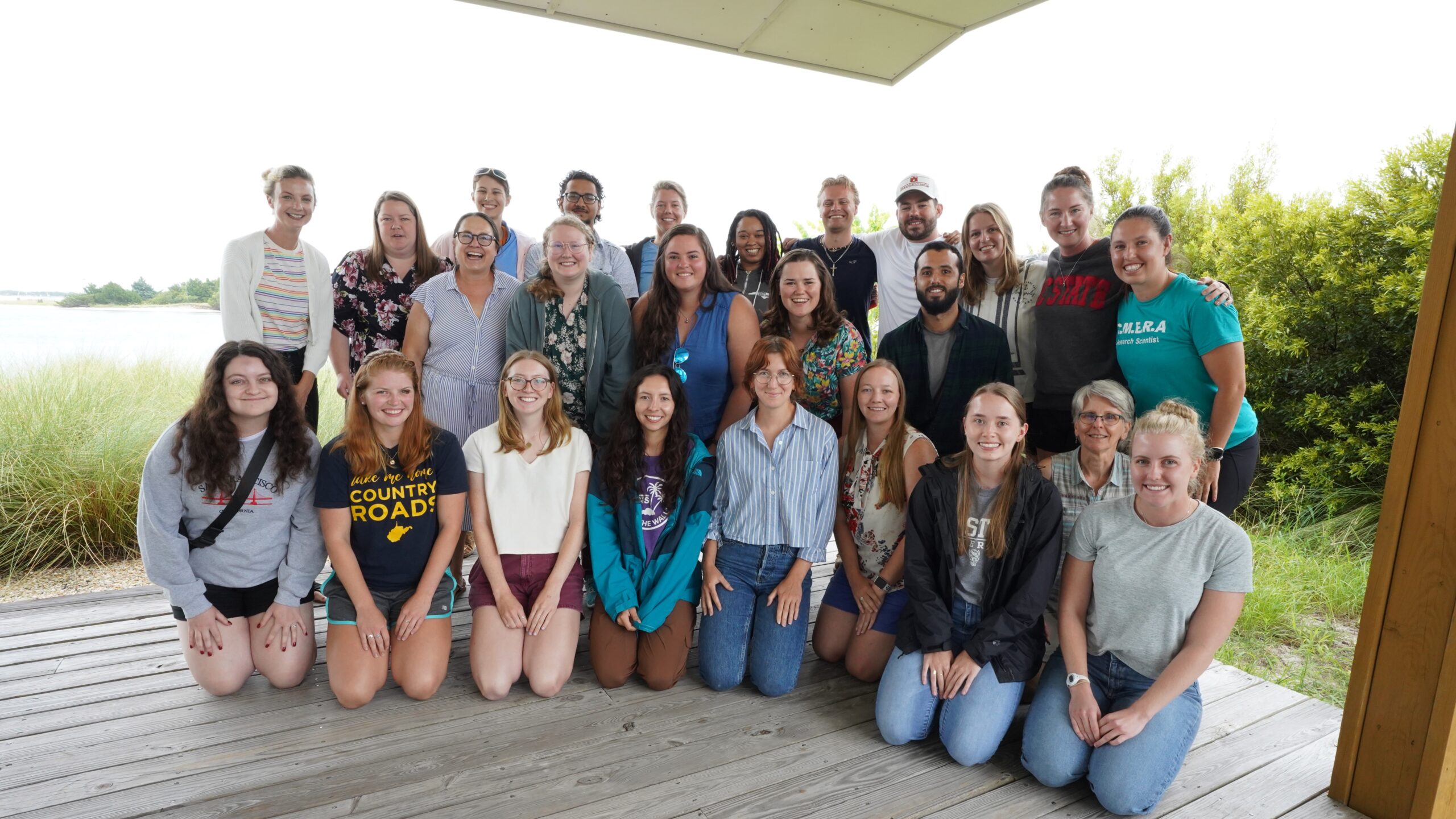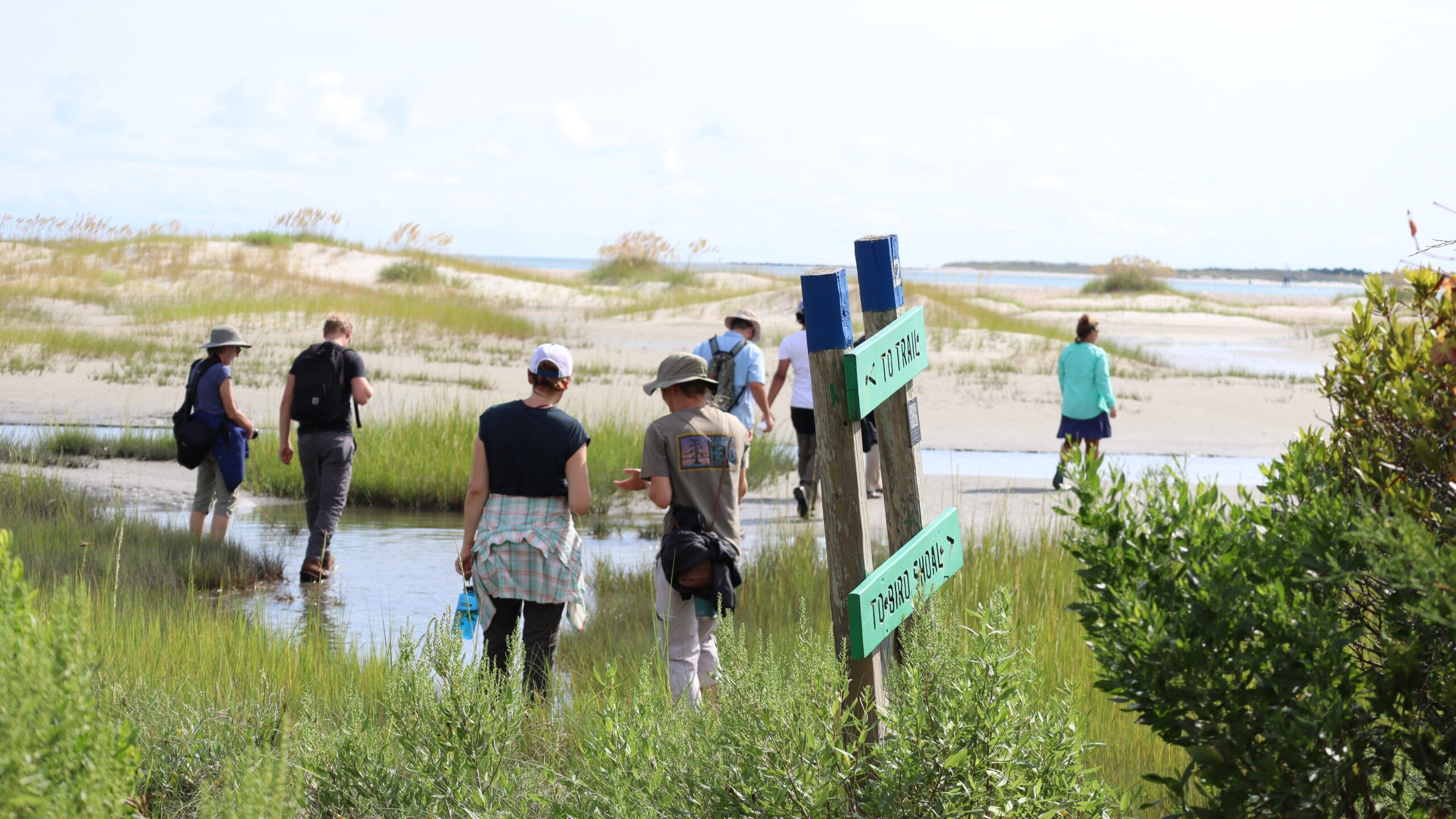SE CASC 2022 Climate Adaptation Science Field Intensive

A new cohort of NC State graduate students representing several colleges and departments began their year-long tenure as Global Change Fellows on August 1, 2022. This group of outstanding students started their time by participating in the Southeast CASC Climate Adaptation Science Field Intensive, held August 14-19. Also joining in this student researcher kickoff event were several graduate students from SE CASC Consortium Universities – Auburn University, University of Florida, University of Tennessee, Duke University, and University of South Carolina.
Set at Duke University Marine Lab in Beaufort, NC the week focused on an introduction to climate adaptation concepts and included: 1) place-based learning on how climate impacts natural and cultural resources off the North Carolina coast, 2) introduction to co-production and how to engage with multiple stakeholders, 3) ethical engagement with Tribal Nations, and 4) principles of science communication.

Assistant University Director Aranzazu Lascurain, Tribal Climate Strategies Research Scholar Marie Shaefer, University Director Becky Irwin, Program Manager Cari Furiness, USGS Director Katherine Smith, USGS Deputy Director Ryan Boyles, Climate Impacts Post Doc Scholar Kasia Nikiel, and Science Coordinator Jen Cartwright led different elements of the course, with the able support of Brittany Salmons, Climate Science Translation and Communications Fellow. Participants engaged with resource managers from the National Park Service and U.S. Forest Service, leaders of the North Carolina Coastal Federation, educators from the Core Sound and Waterfowl Museum, specialists from NC State University, and scientists from NC Natural Heritage Program, NOAA, NC DEQ, USGS, Duke University, and NC Sea Grant. In addition to learning about science, we heard stories from cultural resource managers and local community members, and experienced coastal habitats and species. It was a great opportunity to network with people in diverse fields and think about how to use those connections to solve challenges facing the Southeast and especially coastal regions.

- Categories:
